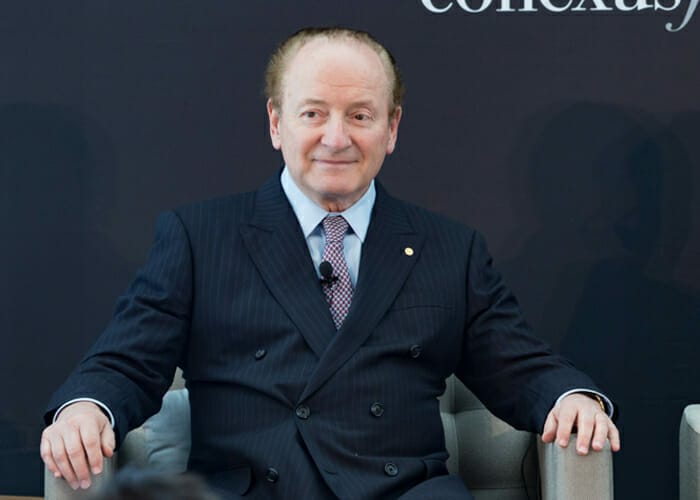The ESG industry needs to make more progress on the ‘S’ to provide investors with reliable data on human rights issues, said Kerry Kennedy, president of the Robert F. Kennedy Human Rights organisation, who spoke at the Fiduciary Investors Symposium.
Kennedy said investors should be able to rely on data from the environmental, social and governance industry to assess risk, and while much has been done on the environment and governance, there is still much more work to be done providing reliable data on the social aspects.
“Analysis of 12 leading ESG frameworks show the industry is still failing on its objectives when it comes to ‘S’,” she said.
Kennedy, who is the daughter of Robert F. Kennedy and has been a human rights advocate since 1981, said the industry is failing in four ways:
- Social measurement evaluates what is most convenient, not what’s most meaningful
- Approaches to disclosure don’t yield information on social leaders
- There is a lack of consistent standards underpinning social measurement
- Existing measurements don’t equip investors for the growing demand for information on human rights issues.
“In short, the ESG industry must improve measurement of S. Investors are too willing to accept data that is not adequate,” she said. “S is not a tick-the-box exercise.
“Most investors view themselves as good actors who will deploy capital that benefits society if they can do so by meeting their fiduciary duty to beneficiaries. This is an important moment to seek better rigour on the S in the ESG industry.”
Further, she said there were a number of things that were necessary to improve the measurement of social factors:
- Companies’ real-world effects should be measured, not just their efforts. Rather than asking for safety guidelines, ask how many people were harmed on the floor
- Diversify the data
- Establish and rely on clear standards
- Target investors as the primary audience.
“Companies should redirect away from reporting on commitments and process, towards gathering and disclosing information on the effectiveness of these efforts on the ground,” Kennedy said. “Investors and consumers should demand accurate, performance-based social measures, and asset owners and managers, particularly large institutional investors, should examine and articulate the systemic social risks they see in their investments.
“We believe investors, if equipped with reliable data, are in a unique position to reward companies with strong social performance.”
Anna Pot, manager of responsible investment at Dutch pension provider APG, which manages €451 billion ($530 billion), also spoke at the conference, which is taking place at the Massachusetts Institute of Technology in Cambridge.
She said that as a long-term investor, taking into account social considerations, including human rights, is the right thing to do.
“We see more evidence from companies that human rights matters,” Pot said. “To be successful, they need a social licence to operate. Engaged workers are more productive, and there is less worker turnover and better company performance.”
APG has an inclusion approach to investing and has proprietary methodology to identify leaders and laggards.
“If the investment team wants to invest in the laggards, that’s OK but they need to allocate assets and engage with these companies to improve them,” Pot said. “This automatically means our portfolio managers will be more selective in their process, because investing in laggards means more time and capacity.”




